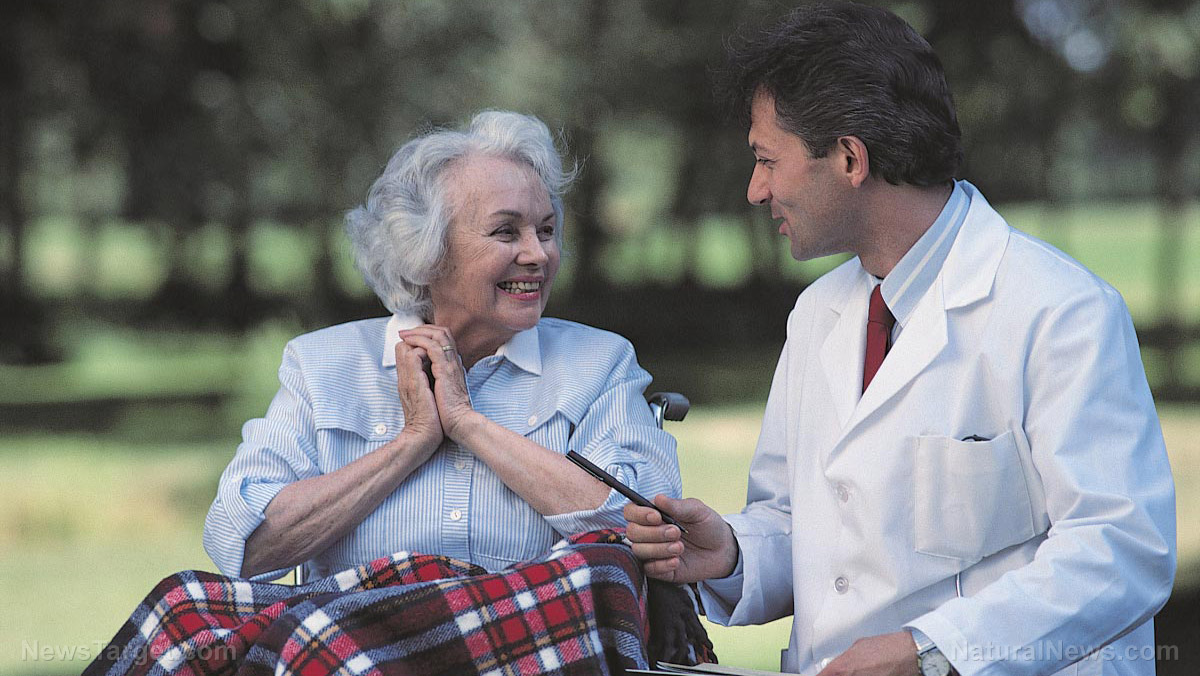Looking backward can help you move forward: Research suggests nostalgia improves mental and emotional health
04/20/2019 / By Zoey Sky

Indulging in nostalgia helps people remember happier times in their lives. According to several studies, reminiscing about the past also offers several benefits for your emotional well-being and overall health.
According to a series of studies, which were published in the Journal of Personality and Social Psychology in 2015, nostalgia gives you insight into your authentic self. Nostalgia also gives individuals a greater sense of meaning in their lives.
Krystine Batcho, a professor of psychology at Le Moyne College in Syracuse, New York, explained that individuals who are high in nostalgia are able to cope with difficult situations in healthier ways. If you frequently think about past memories that bring you joy, there’s a high chance that you can express your emotions, connect with others, and be more willing to ask for advice or practical help.
Batcho, who has been studying nostalgia since 1995, added that people can use their sense of nostalgia to manage stress because they have “a unified sense” of who they are.
Nostalgia and your mental and physical health
Nostalgic recollections connect your past and present self, and these reminiscences can help you become a better person. Additionally, nostalgia develops, maintains, or restores a sense of personal identity by helping you make sense of your life’s story.
This could explain why the results of a 2018 study, which was published in the Journal of Alzheimer’s Disease, showed that nostalgia helps enhance the following psychological resources in individuals with dementia:
- Sense of meaning in life
- Optimism
- Positive mood
- Self-continuity
- Self-esteem
- Social connectedness
The researchers noted that being nostalgic helps protect your sense of self from anxiety related to aging, death, and other potential threats.
Richard Cheston, a co-author of the study, shared that unlike an ordinary memory, nostalgia gives you an extra layer of psychological resilience. Cheston, who is also a clinical psychologist and professor of dementia research at the University of the West of England, added that nostalgic memories are unique since they possess a particular emotional quality. Nostalgia also involves memories that significantly affect how you see yourself.
Emotionally charged memories also benefit your physical health. In a 2016 study published in the journal Psychology & Health, researchers told participants to write about a nostalgic event.
They then discovered that volunteers who wrote about nostalgic events scored higher on measures of health optimism and health attitudes compared with those who wrote about ordinary events. (Related: Focus on the good memories: Can “happiness” exercises help enhance the mood of individuals recovering from substance abuse?)
Data from the participants’ Fitbit activity trackers also suggested that those in the nostalgic group improved their physical activity over the next two weeks.
Nostalgia and personal relationships
A pair of studies which appeared in the Journal of Marital and Family Therapy showed that reminiscing on the good times while in a romantic relationship could give a temporary boost to a person’s satisfaction with their relationship.
Allen Mallory, co-author of the study and a doctoral student in human development and family sciences at the University of Texas at Austin, shared that nostalgia allows people to mentally relive happy memories in a relationship. In turn, the positive feelings and fondness that are usually triggered by these memories promote satisfaction with the relationship.
However, Mallory warned that people shouldn’t get stuck in past happy memories because they may remind them of what’s currently lacking in their relationship.
Additionally, nostalgia makes people more empathetic. Thinking of happy memories makes them feel a stronger sense of belonging and affiliation and this makes them more generous when interacting with others.
Indulge your nostalgia in a healthy way
Exercise caution when reminiscing about happy memories or else, you might get stuck in the past and forget to actively live in the present.
Batcho says the best way to use nostalgia is to bring the best of the past forward, update it and use it in a helpful way. Make an effort to end your trip down memory lane so you can still appreciate your blessings in the present.
If nostalgia makes you miss old friends, reach out to them using social media. You can also meet them in person if they live nearby.
When dealing with stress or disappointment, try to recall a previous achievement to boost your optimism, resolve, and resilience. Use nostalgia to revisit older memories and reflect on these happy times whenever you need inspiration.
Sources include:
Tagged Under: Anxiety, brain function, destressing tips, emotional health, good memories, happiness, memories, mental health, mind body science, natural healing, nostalgia, nostalgic memories, positive experiences, positive mood, positive psychology, psychological resilience, Psychology, relationships, reminiscence, research, stress


















